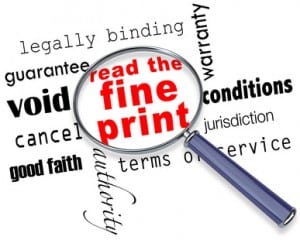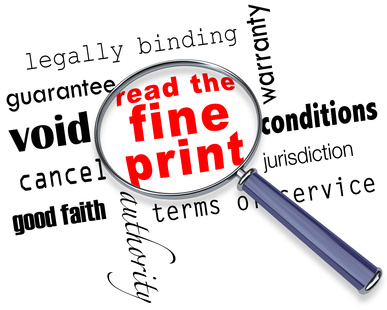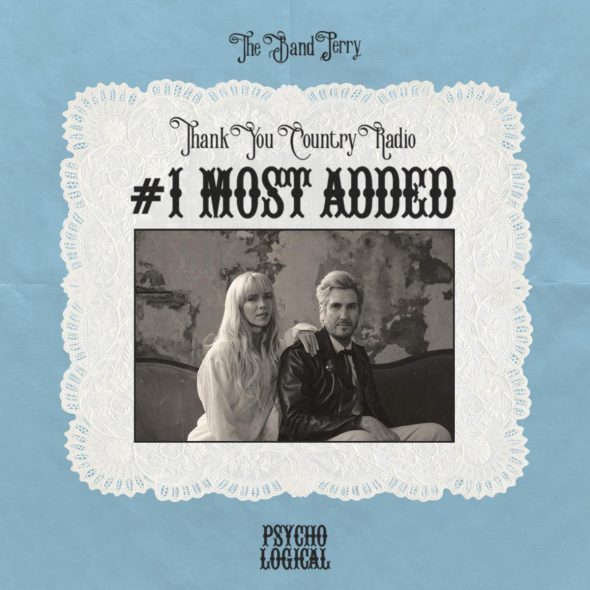Read the fine print
by Stephen Stern, executive editor, Music Insider Magazine
 Defining success as a professional musician comes in many forms — including the organic creative charge it creates within you and others; the horizons it expands from travel and cultural exchanges; and the bills it pays for from the basic, to the extravagant comforts. But to instrument junkies, success may simply be measured by gear endorsements. The endorsers are their dealers, and the heroin comes in many forms: amps, guitars, pedals, drums, cymbals, microphones, strings, and the list goes on.
Defining success as a professional musician comes in many forms — including the organic creative charge it creates within you and others; the horizons it expands from travel and cultural exchanges; and the bills it pays for from the basic, to the extravagant comforts. But to instrument junkies, success may simply be measured by gear endorsements. The endorsers are their dealers, and the heroin comes in many forms: amps, guitars, pedals, drums, cymbals, microphones, strings, and the list goes on.
Unlike the street dealer, the corporate dealer treats his users differently, from the nearly carte blanche with picks and strings for an emerging artist. Between the two spectrums lays the majority of artists, who can find the relationship enriching and ego-stroking to used and abused.
It doesn’t take an MBA from Harvard to realize that these corporations are exchanging gear for the marketing value of your name. Or when the masses see their brand name on the bass drum or from the guitar shape they see on national and worldwide television or when they walk into the local music store and see the poster of their hero slashing away.
So what is your name and likeness worth? Free strings? A Marshall amp? A few drum heads? Or your own signature series custom guitar for which you (should) get sales royalties?
The exchange typically comes through an exclusive gear agreement, which typically states that you agree that they can use your name and likeness and celebrityhood in any medium, for any purpose they desire. For which, you get some free but unspecified gear each year, and a respectable discount for other gear you need but not provided for free. Again, depending on the amount, level and quality of the gear, this could be a great deal, if the company’s artist representative takes care of your needs in quick fashion — particularly when on tour in the hinterlands.
However, before you tap that vein, read the fine print. Specifically, the provision that allows the company to repossess the gear on a whim’s notice. Impossible, you think, for now used gear? This happened to two very high-profile artists on the number one music show in the U.S. One of the artists refused to return the two bass guitars until the company paid him the equivalent of $600,000 for free marketing on national television. He actually sent them the bill! He hasn’t heard a whimper since.
The other guitarist, back on tour with one of the most famous bands on the planet, is now two guitars short, but free to play whatever brand he wants on any given song. As he becomes more famous, that company will be sorry for the disrespect and short-sighted approach they took for two used guitars!
On the flip side, a great artist representative will, in turn, encourage the artist to be their greatest spokesperson. This is especially important when the artist is playing a slightly less quality product just because of the artist’s representative. These are the peeps who will answer your frantic call or e-mail nearly instantaneously, take care of all your gear issues, make you feel loved and appreciated with ample promotion at trade shows and of course the tequila shots following the autograph sessions don’t hurt either. Moreover, opportunities will arise for the artist to provide clinics at music stores, at home and away. In addition to providing some decent cruising money, it also expands the artist’s fan base and social media with each clinic. Plus there is the most important reason — having a highly influential impact on aspiring musicians.
The ultimate high for endorsed gear junkies is having your own signature instrument custom built to your specs and your names engraved on its face. Two artists have achieved this status: Mark Schulman (P!NK, Foreigner, Billy Idol, etc) has a custom Gretsch snare drum, and Eva Gardner (P!NK, Mars Volta, Telstar) just received her custom P Fender bass, complete with the ship she has tattooed on her arm.
As you climb the musical mountaintop of success, remember to read the fine print, knowing the strings will go flat, the heads will lose their sonics, and the amps will blow. The only thing that sustains is the value of you and your art, which, like signature gear, is based on respect rather than success.




